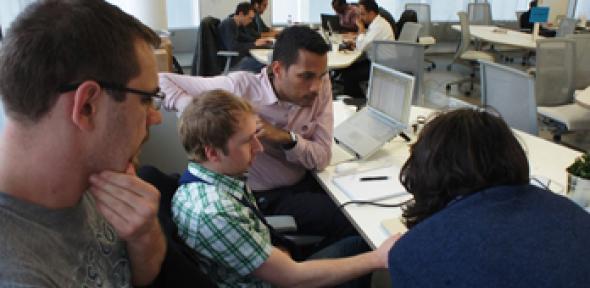
Data scientists from the Department of Engineering formed part of the winning team in the first ever global Data Science Hackathon.
Research Associate Dr Jose Miguel Hernandez Lobato and PhD student Ferenc Huszar were among a group of four data enthusiasts making up The Londoners team which won £1,200 in the competition by developing an early-warning system for air pollutants. Jose Miguel and Ferenc are both part of the Machine Learning Group within the Computational and Biological Learning Lab.
The hackathon was held to promote Data Science and to show what can be achieved by combining Data Science with Open Source, Hadoop, Machine Learning and Data Mining tools. In addition, the event also aimed to promote the sense of community, team work and free spirit competition aspects of Data Science.
The competition challenge was to improve the US Environmental Protection Agency's Air Quality Index by designing a better and more accurate predictive model of metropolitan air pollution. The EPA's Air Quality Index is used daily by people suffering from asthma and other respiratory diseases to avoid dangerous levels of outdoor air pollutants, which can trigger attacks.
Ferenc commented: "According to the World Health Organisation there are now estimated to be 235 million people suffering from asthma. Globally, it is now the most common chronic disease among children, with incidence in the US doubling since 1980. The model we built could be used as the basis for an early warning system that is capable of accurately predicting dangerous levels of air pollutants on an hourly basis."
Over 200 data scientists from several cities around the world participated in the competition. The non-stop 24 hour event took place at venues in London, San Francisco, Chicago, Boston, New York, Canberra, Melbourne and Turku (Helsinki).

